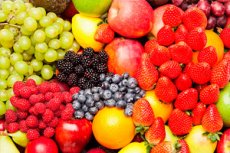
抑郁症是全球范围内一个重大的公共卫生问题。世界卫生组织指出,抑郁症是造成难以预测的健康负担的主要原因,其中超过80%的健康负担发生在中低收入国家。
越来越多的研究表明,饮食习惯,尤其是增加水果和蔬菜的摄入量,可以显著降低患抑郁症的风险。
悉尼新南威尔士大学健康大脑老化中心 (CHeBA) 的博士后研究员 Annabel Mathieson 领导的一项新研究发表在《情感障碍杂志》上,首次探讨了老年人和中低收入国家人群数据缺乏的问题。
马西森解释说:“与年轻人的抑郁症相比,老年人的抑郁症对身体机能和认知功能的影响更大,并且与生活质量下降和死亡率上升有关。”
“我们这项研究的目的是调查 45 岁及以上人群的水果和蔬菜消费与抑郁症之间的关系。”
这项研究的参与者来自六大洲的不同地区,包括美国、瑞典、巴西、尼日利亚、马来西亚和澳大利亚。所有数据均来自由CHeBA领导的国际记忆队列研究联盟(COSMIC)的十项长期研究,并经过整理。
研究人员分析了 7,801 名没有抑郁症的社区个体的数据,发现在九年的时间内,增加水果摄入量与降低抑郁症风险之间存在正相关关系。
马西森指出:“这一有趣的发现表明,水果消费与抑郁症风险之间存在保护性关联,凸显了在公共卫生中更加重视饮食的必要性。”
尽管这项研究的结果表明食用蔬菜有益,但并未发现具有统计学意义的发现。
“我们发现水果与蔬菜之间存在正相关性,而蔬菜与蔬菜不存在正相关性的原因可能是,蔬菜通常是煮熟后食用,这可能会降低其营养价值,而水果通常是生吃的。”
水果和蔬菜摄入量通过自我报告进行评估,采用综合食物频率问卷、简略食物问卷或饮食史。抑郁症状采用经过验证的测量方法进行评估,抑郁症的定义则根据既定标准。基线水果和蔬菜摄入量与3至9年随访期内抑郁症发展之间的关联,采用Cox回归分析。
有研究表明,水果和蔬菜中富含的抗氧化剂、膳食纤维和维生素可能通过多种机制对抑郁症产生积极影响,例如它们在炎症、氧化应激和肠道菌群中的作用。由于水果和蔬菜含有不同的营养成分,不同类型的水果和蔬菜对抑郁症风险的影响可能也不同。柑橘类水果和绿叶蔬菜与降低抑郁症风险相关的证据尤其有力。
CHeBA 联合主任兼研究合著者亨利·布罗达蒂教授表示,有必要开展进一步研究,采用标准化措施考虑不同类型水果和蔬菜的消费情况,并重点关注大量老年人,特别是中低收入国家的老年人。
布罗达蒂教授说:“将当前研究扩展到与食物摄入相关的基因,代表着影响水果和蔬菜消费的一种有希望的途径。”
他补充道:“为了更好地理解其中的关系,还应该考虑所消费的水果和蔬菜的种类,并且应该设计研究以确保不同群体之间具有更大的可比性。”

